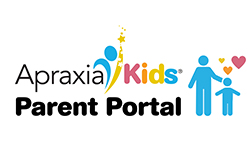Childhood apraxia of speech (CAS) is a neurological disorder in which the child’s brain has difficulty planning and programming the movements needed for speech. The child knows what they want to say, however, the words do not come out correctly. Speech is a motor act just like throwing a basketball, hitting a tennis ball with a racquet, playing a piano, or writing a word with a pencil. In order to do a motor act, the brain must first develop a plan to execute, send the plan to the muscles to move, and then the muscles move and the act is carried out.
If we look at writing a word such as appreciation. If you pick up your pencil with your dominate hand, you put it on the paper and the word comes out smoothly and hopefully legibly without you thinking about it. Now, move your pencil to your other hand and write the word appreciation. What do you notice? Do you write it as quickly as you do with your dominant hand? Do you have to think about how to form any letters? Do you have to think about how to spell it? Is it as neatly written?
What was happening? Your brain had to create a whole new motor plan to tell your other hand how to do this task. All of the details had to be planned out from how to hold the pencil, what angle your wrist/hand needed to be to write, where to put you pencil to start the letters, how high up/down/far to move to form each letter (did you stay on the line??) how hard to push down on the paper, and what letter comes next? (is there 1 or 2 ‘p’s in the word?). All of this planning caused you to go slower and to not be as efficient and possibly to make errors.
Now think about saying a word from a language you do not know. Your brain has to tell your mouth minute details of where to place and move your tongue, how far to open your mouth, where your lips need to be and how to move, if your voice is turned on or not, and many more details for each sound in the word. You can do produce that word, but it might take some trial and error to get all of the sounds just right as your brain figures out all of these details. For a child with CAS, their brain has difficulty planning out these movements for speech (and sometimes for other movements). It doesn’t happen automatically even though they are familiar with the word and have heard it many times. That is CAS. They know what they want to say, but their brain is unable to form the motor plans smoothly for them to say the word. There are numerous characteristics we can see in a child who is trying to talk that can tell us if their brain is having trouble with motor planning.
By Laura L. Moorer
October 2021
